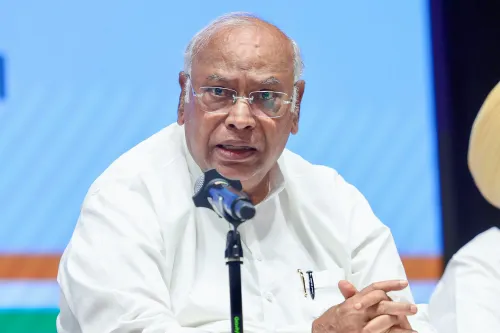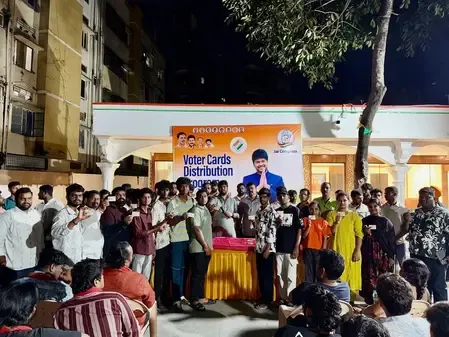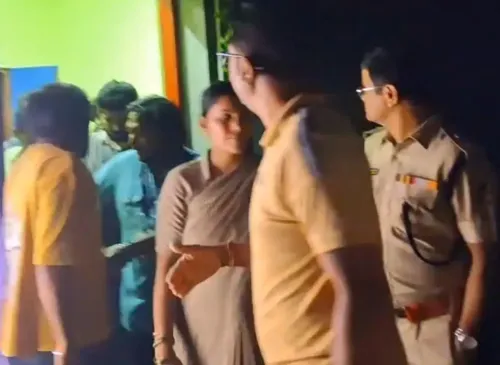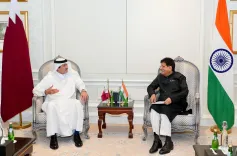Why has Arundhati Roy's book been declared ‘forfeited’ by the J&K government?
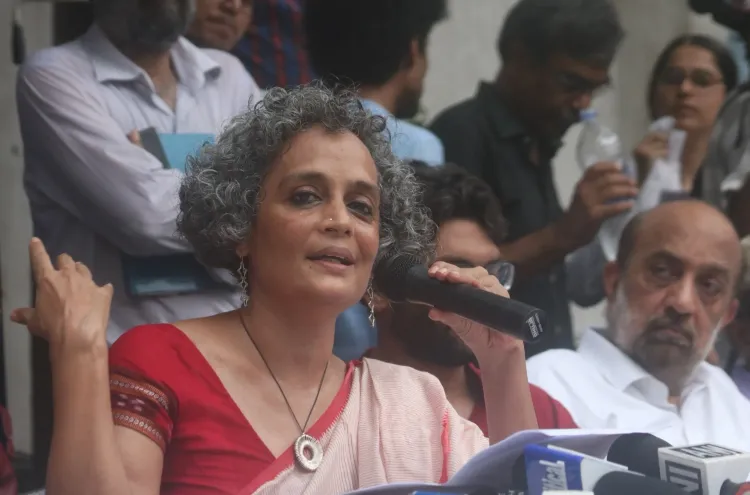
Synopsis
Key Takeaways
- The J&K government has declared 25 books, including works by Arundhati Roy, as 'forfeited'.
- These books are accused of contributing to youth radicalisation and secessionism.
- The declaration is based on legal provisions aimed at preserving national integrity.
- Concerns include the glorification of terrorists and vilification of security forces.
- The government's move raises important questions about freedom of expression.
Srinagar, Aug 7 (NationPress) The government of Jammu and Kashmir has officially classified 25 books as ‘forfeited’ under legal provisions due to their role in fostering radicalisation among the youth, glorifying terrorists, demonising security forces, and encouraging alienation within the community. Notably, one of the books listed is authored by Arundhati Roy.
An official directive from the J&K Home Department was released late Wednesday night.
The directive states, “The identified 25 books have been found to incite secessionism and threaten the sovereignty and integrity of India, thus invoking the provisions of Sections 152, 196 and 197 of the Bharatiya Nyaya Sanhita 2023.”
It further indicates that according to Section 98 of the Bharatiya Nyaya Sanhita 2023, the J&K government has declared the publication of these 25 books, along with their copies or related documents, to be forfeited to the state.
“These books have been flagged for promoting a false narrative and secessionism in Jammu and Kashmir, necessitating their declaration as ‘forfeited’ under Section 98 of the Bharatiya Nagarik Suraksha Sanhita, 2023.
“Reports indicate that certain literature disseminates a false narrative and secessionist sentiments in Jammu and Kashmir.
“Available evidence from investigations and reliable intelligence clearly shows that a considerable factor in youth involvement in violence and terrorism has been the systematic spread of false narratives and secessionist literature, often masquerading as historical or political analysis, which plays a pivotal role in misguiding youth, glorifying terrorism, and inciting violence against the Indian state.
“This literature profoundly affects the mindset of youth by fostering a culture of grievance, victimhood, and terrorist heroism. Mechanisms through which this literature has contributed to the radicalisation of youth in Jammu and Kashmir include the distortion of historical facts, glorification of terrorists, vilification of security forces, religious radicalisation, promotion of alienation, and pathways to violence and terrorism.”
The government’s list of forfeited books includes ‘Azadi’ by Arundhati Roy, ‘Kashmir’ (The case of Freedom) by Tariq Ali, Hillal Bhatt, Angana P Chatterji, Pankaj Mishra, and Arundhati Roy, ‘The Kashmir Dispute 1947-2012’ by A.G. Noorani, ‘A Dismantled State’ (The Untold Story of Kashmir After Article 370) by Anuradha Bhasin, ‘Human Rights Violations in Kashmir’ by Piotr Balcerowicz and Agnieszka Kuszewska, ‘Kashmir’s Fight for Freedom’ by Mohd Yosuf Saraf, ‘Colonizing Kashmir, State-Building under Indian Occupation’ by Hafsa Kanjwal, ‘Kashmir Politics and Plebiscite’ by Dr Abdul Jabbar, ‘Do You Remember Kunan Poshpora’ by Essar Batool & Others, ‘Mujahid Ki Azaan’ by Imam Hasan Al-Bana Shaheed edited by Maulan Mohammad Enayatullah Subjhani, ‘Al Jihadul Fil Islam’ by Moulana Moudadi, ‘Independent Kashmir’ by Christopher Snedden, ‘Resisting Occupation in Kashmir’ by Haley Duschinski, Mona Bhat, Ather Zia, and Cynthia Mahmood, ‘Between Democracy and Nation’ (Gender and Militarization in Kashmir) by Seema Kazi, ‘Contested Lands’ by Sumantra Bose, ‘In Search of a Future’ (The Story of Kashmir) by David Devadas, ‘Kashmir In Conflict’ (India, Pakistan and the Unending War) by Victoria Schofield, ‘Kashmir at the Cross Roads’ (Inside a 21st Century Conflict) by Sumantra Bose, ‘Resisting Disappearance’ (Military Occupation & Women’s Activism in Kashmir) by Ather Zia, ‘Confronting Terrorism’ by Stephen P Cohen Edited by Maroof Raza, ‘Freedom in Captivity’ (Negotiations of belonging along Kashmiri Frontier) by Radhika Gupta, ‘USA and Kashmir’ by Dr Shamshad Shan, ‘Law & Conflict Resolution in Kashmir’ by Piotr Balcerowicz and Agnieszka Kuszewska, ‘Tarikh-i-Siyasat Kashmir’ by Dr Afaq, and ‘Kashmir & the Future of South Asia’ Edited by Sugata Bose & Ayesha Jalal.

